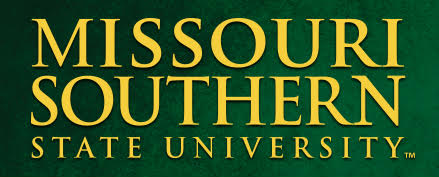MSSU educational leaders awarded $2.3m science grant

JOPLIN, Mo. – Missouri Southern State University, in association with the Missouri Biotechnology Association (MOBIO), MOSO CAPS, and Missouri Western State University, has received a $2.3 million grant from the Missouri Department of Higher Education and Workforce Development to build a statewide program designed to increase the awareness of workforce opportunities in health and agricultural sciences through an aggressive outreach and education program.
Missouri Southern has developed a comprehensive partnership via the Missouri Department of Higher Education and Workforce Development, MWSU, and MOBIO to create and implement the Science to Jobs (S2J) program. This pilot program will ultimately add greater awareness and build interest in science programs and careers needed throughout the western side of the State of Missouri and on the MSSU campus.
The program is specifically aimed at further building educational bridges with K-12 schools’ students and teachers, creating summer experiences on the Missouri Southern campus in Joplin to connect students with career opportunities in health sciences and related areas. Missouri Southern is the fiscal agent for the grant.
“These partners have committed to developing a program that will introduce STEM and other health science elements to younger students throughout our state, while bringing students onto our campus for summer enrichment programs,” said Lisa Toms, Missouri Southern’s Provost, and Vice President for Academic Affairs. “The strategies will encourage support and drive awareness for educational awareness and ultimately career opportunities in health sciences and technology. These combined strategies empower ‘hands on-brains on’ exposure and learning opportunities to students and educators throughout our state.”
Additionally, this outreach effort across the state will link local work-eligible citizens, including near-graduating students and their parents, to career opportunities, serving as an integrated science, business, and collegiate recruitment initiative.
Funds from the grant will also deploy a biosciences-themed immersion trailer for training and outreach in rural and underserved areas throughout the state. MOBIO, as a statewide network of biotech and bioscience employers, will build the trailer, taking the information directly to students who typically don’t have ready access.
MOBIO will tap into its impressive array of companies and research institutions to inspire the next round of students interested in careers in the life sciences. This biosciences boot camp and tour will include students, teachers, higher education faculty, and professional staff. The statewide bus tour will cover Southwest Missouri, Kansas City, St. Joseph, Columbia, Springfield, St. Louis, and other locations.
“Biotech is hope for people with rare diseases or complex health challenges. Biotech is also minimizing the risks and the challenges facing Missouri farmers, helping to feed the world by growing yields with existing resources,” said Kelly Gillespie, the Executive Director of MOBIO. “Biotech can also be a great addition to clean energy supplies. The public understands all that, but students usually have no idea of the types of jobs right here across Missouri that can allow them fantastic careers. Our membership is excited to work with our academic partners like MSSU and MWSU to ensure industry engagement with these talented students, and we uphold our responsibility to inspire tomorrow’s purposeful workforce.”
“MSSU is uniquely positioned to leverage strong regional high schools, a burgeoning and exciting array of clinical care and health system solutions, new medical and dental schools tied to Kansas City, and a committed leadership that knows the life sciences will organically grow in the decades to come,” Gillespie added.
The partnership made possible by the grant will also utilize portable laboratories to empower selected students with bio experiments and curriculum. These class-sized mobile labs will provide students and teachers access to a science curriculum not typically found in schools. The portable lab project are mobile science labs that will be transported to different schools and empower existing science teachers with modern training equipment so students can fully experience the innovative nature of the labs.



